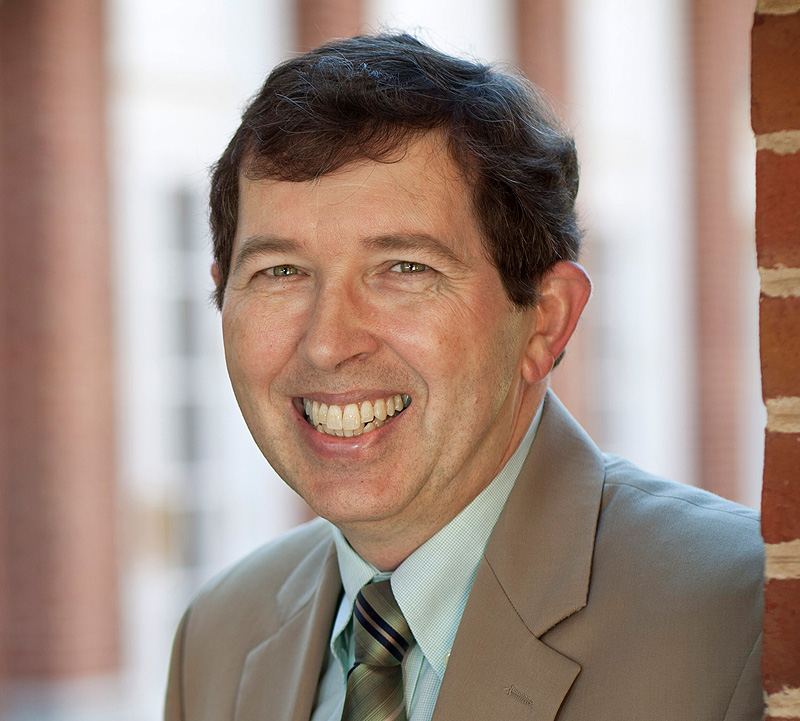University of Virginia clinical psychologist and professor of education Dewey G. Cornell is one of nine “school safety researchers and practitioners” who released a statement Wednesday on the mass shooting tragedy in a Newtown, Conn., elementary school calling for more attention to addressing mental health problems and less emphasis on school security.
The statement, endorsed by more than 100 professional organizations, declares, “Effective prevention cannot wait until there is a gunman in a school parking lot.”
Instead, “We need resources such as mental health supports and threat assessment teams in every school and community so that people can seek assistance when they recognize that someone is troubled and requires help,” the statement says.
The endorsers include the American Federation of Teachers, multiple divisions of the American Psychological Association, Child Welfare League of America, Council for Exceptional Children, National Association of Elementary School Principals, National Association of Secondary School Principals, National Education Association, National Association of School Psychologists, National Association of Social Workers and Mental Health America. Additionally, more than 100 nationally recognized researchers and practitioners endorsed the statement, including deans of several major university colleges of education and social work.
Cornell is a professor in U.Va.’s Curry School of Education and director of the Virginia Youth Violence Project. He is also associate director of Youth-Nex, the U.Va. Center to Promote Effective Youth Development and a faculty associate of the Institute of Law, Psychiatry and Public Policy. Since Friday’s shootings, he has been quoted widely in the national media, including the New York Times, Washington Post and The Associated Press.
He became involved in crafting the statement, which describes itself as an update of a similar position paper issued after a series of school shootings in 2006, due to the work he’s done over the years with the other co-authors of the latest statement. All are researchers and practitioners from multiple fields of study who have worked in the area of school safety, Cornell explained. They decided to issue a new statement because “we were seeing so much being reported on the Newtown shootings that isn’t grounded in science,” Cornell said.
According to a press release distributed today by the Interdisciplinary Group on Preventing School and Community Violence, “The driving force behind the statement was to communicate scientifically informed principles and recommendations for practitioners, policymakers and the public at large. Our goal is to help build consensus on a course of meaningful action.”
The statement emphasizes that mass shootings occur in many settings, and that schools are relatively safe environments. “Children are safer in schools than in almost any other place, including for some, their own homes,” the statement says.
Instead of further strengthening school security measures, the statement says more attention must be paid to the mental health needs of youth and adults.
“Using much-needed federal and state funding, community-based mental health organizations should work in cooperation with local law enforcement, schools and other key community stakeholders to create a system of community-based mental health response and threat assessment,” the statement says. “These efforts should promote wellness as well as address mental health needs of all community members while simultaneously responding to potential threats to community safety. This initiative should include a large-scale public education and awareness campaign, along with newly created channels of communication to help get services to those in need.”
The statement also expresses concern with “youth exposure to violent media,” which it says “can increase the likelihood of physically and verbally aggressive behavior, aggressive thoughts and aggressive emotions.”
It also calls for “increased efforts to limit inappropriate access to guns and especially, assault-type weapons.”
“Multiple lines of research have demonstrated a clear connection between local availability of guns and gun-related violent behaviors, with estimates of close to 2 million children and adolescents having access at home to loaded, unlocked guns,” the statement says. “Although guns are never the simple cause of a violent act, the availability of lethal weapons including assault-type weapons to youth and adults with emotional disturbance and antisocial behavior poses a serious public health problem. Our political leaders need to find a reasonable and constitutional way to limit the widespread availability of guns to persons who are unwilling or unable to use them in a responsible, lawful manner.”
The statement’s other authors include Ron Avi Astor of the University of Southern California; Dorothy L. Espelage of the University of Illinois, Urbana-Champaign; Michael J. Furlong and Shane R. Jimerson of the University of California, Santa Barbara; Matthew J. Mayer of Rutgers, the State University of New Jersey; Amanda B. Nickerson of the University at Buffalo, State University of New York; David Osher of the American Institutes for Research; and George Sugai of the University of Connecticut.
Media Contact
Article Information
December 19, 2012
/content/uva-s-cornell-helps-lead-effort-address-root-causes-mass-shootings

